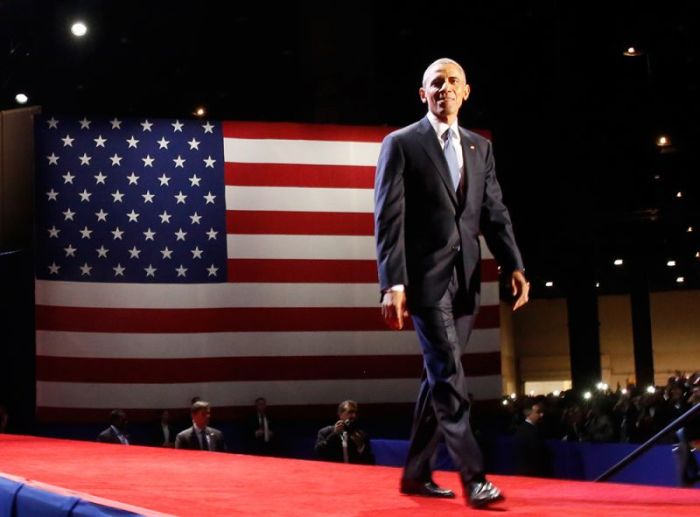How Christianity in America Changed During Obama's Presidency: Pew Report

A new report released this week outlines the changes in American society during President Obama's eight years in office; the number of Christians in the United States has dropped significantly, the statistics show, but others argue there's more to the story.
"When it comes to the nation's religious identity, the biggest trend during Obama's presidency is the rise of those who claim no religion at all," according to a report released on Wednesday titled "How America Changed During Barack Obama's Presidency" from the Pew Research Center. When Obama took office in 2008, approximately 16 percent of Americans identified as either atheist, agnostic, or "nothing in particular." As Obama leaves office, that number has increased to a quarter of the population.
"To me, the Pew data is very important but it's not the only data," said John S. Dickerson, author of the 2013 book The Great Evangelical Recession, in an interview with The Christian Post on Friday. "Because there is some conflation between 'born again' and 'evangelical' and the Pew data does not extricate between the two."
"But when it comes to the long-term trajectories [for evangelicals], I don't see anything that has changed," he added.
Dickerson's book contends that if you extricate born again and evangelical and actually count the number of devoted evangelicals, they amount to approximately 8 to 10 percent of the population.
"In 2013, when I first released the national data about evangelical Christianity declining, and at that time some prominent leaders said the trends could not be true. But the data never lies, and the last five years have sadly demonstrated what the data suggested back in 2013 — that Millennials are embracing agnosticism and increasingly rejecting Biblical Christianity," Dickerson noted.
The Pew report states: "Christians, meanwhile, have fallen from 78 percent to 71 percent of the U.S. adult population, owing mainly to modest declines in the share of adults who identify with Mainline Protestantism and Catholicism. The share of Americans identifying with evangelical Protestantism, historically black Protestant denominations and other smaller Christian groups, by contrast, have remained fairly stable."
Simultaneously, however, Americans who identify with a particular faith are as devout as they have ever been and by some accounts even more so.
Though the full "How America Changed" report was released this week, the findings on religious identification were harvested from Pew's 2015 America's Changing Religious Landscape Survey. Media outlets skewed the numbers and created a false narrative at the time, according to notable scholars from Baylor University. The Jan. 11 Pew report also addressed a range of cultural phenomena and political divisions, such as the widespread use of social media, distrust in government, and America's place in the world.
CP asked Dickerson to explain how Obama's administration has affected American evangelical Christianity.
"I think evangelicals largely felt alienated and ignored during the eight years of this administration. If you rewind through the decades, evangelical Christians were at the head of the table, then they moved to the foot of the table, and then they got moved to the kids table, and then they got kicked out of the dinner party altogether," Dickerson said.
Those negative feelings likely precipitated a vote for a man in a presidential election many evangelicals found unsavory, he explained.
First Things editor R.R. Reno previously told CP in an interview about his book Resurrecting the Idea Of A Christian Society that "the main problem facing Christians today is a kind of lament, a spirit of lament of having lost the country" and that lament "tends to make contemporary Christians resentful of the present age. So it creates a defensive posture toward the contemporary moment as we feel the current going against us."
"Instead, what has happened is very powerful elements of our society are shaking off this presumptive authority of Christianity to define their lives and for the wider public culture of America," Reno said.




























